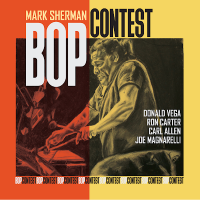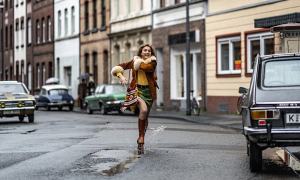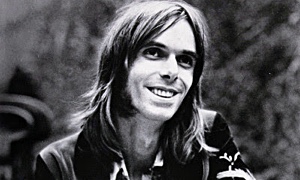Home » Jazz Articles » Film Review » Morricone Conducts Morricone
Morricone Conducts Morricone
Morricone Conducts Morricone
Euroarts Music
2006
Achieving prominence in the sixties with his genre-defining spaghetti western scores, film composer Ennio Morricone has since proven incomparably prolific. His eccentric recorded catalogue is well worth exploring, and the least known films often yield the most interesting music. Bouncing from orchestral pop to atonal jazz and everywhere in between, his scores frequently outshine the films for which they were written.
Since the eighties, Morricone has attained a higher profile as his proclivity for lush romanticism has become more pronounced. The sweeping, epic grandeur that informs his later work also dominates the proceedings on Morricone Conducts Morricone, a concert performance recorded in Munich, Germany. Joined by a large choir, Müncher Rundfunkorchester is led by the composer through the most recognizable themes in his canon, with occasional detours into more obscure territory. The music is grouped into sections that emphasize various aspects of Morricone's oeuvre; a handful of selections are accompanied by corresponding film clips.
Paying tribute to director Sergio Leone, the orchestra takes on the spaghetti western music for which Morricone remains best known. While the vocal in Once Upon a Time in the West is deftly handled by soprano Susanna Rigacci, one cannot help but feel the absence of Edda Dell'Orso, the singer usually associated with Morricone's work. The theme from The Good, the Bad and the Ugly appears here, sans the kitchen-sink production that makes the film version so irresistible.
Better served is the music from Once Upon a Time in America, Leone's only non-western and undoubtedly one of Morricone's finest scores. Included are ethereally beautiful cues like "Deborah's Theme" and "Cockeye's Song", the latter highlighted by a passionate performance from Ulrich Herkenhoff on panpipes. Equally stirring is a Neo-Romantic suite from Canone Inverso. In the midst of their canonical interplay, pianist Gilda Butta and violinist Henry Raudales invest the soaring melodies with such conviction that it is difficult not to be moved.
The incorporation of cues from little known films like Maddalena and H2S make the disc a must for Morricone's diehard fans. Granted, witnessing an orchestra earnestly perform lighthearted pop like the theme to Love Circle without a hint of irony is not as fun as hearing the music in its original context. But the musicians shine on the justifiably famous The Mission, a fitting finale that gradually builds to a glorious cadence for full orchestra and choir.
Morricone the melodist has received his due on tribute albums by the likes of jazz pianist Enrico Pieranunzi and cellist Yo-Yo Ma, while the compilations Mondo Morricone and Crime and Dissonance have thoroughly documented the experimental side of his recorded output. What ultimately distinguishes Morricone Conducts Morricone from the countless CD anthologies that have been released is the opportunity to see the composer with baton in hand, peering intently from beneath his furled brow, deeply engrossed in the music.
Tracks: The Untouchables; Once Upon a Time in America: Deborah's Theme / Poverty / Main Theme; The Legend of 1900; Cinema Paradiso; H2S; The Sicilian Clan; Love Circle; Love Circle: Uno che grida amore; Maddalena: Come Maddalena; Once Upon a Time in America: Cockey's [sic] Song; The Good, the Bad and the Ugly; Once Upon a Time in the West; A Fistful of Dynamite; The Good, the Bad and the Ugly: Ecstasy of Gold; Canone Inverso; Investigation of a Citizen Above Suspicion; According to Pereira; The Working Class Goes to Heaven; Casualties of War; The Desert of the Tartars; The Mission
Personnel: Müncher Rundfunkorchester; Chor des Bayerischen Rundfunks; Susanna Rigacci: soprano; Gilda Butta: piano; Henry Raudales: solo violin; Norbert Merkl: solo viola; Ulrich Herkenhoff: panpipes; Ennio Morricone: conductor.
Production Notes: 100 minutes. Recorded October 20, 2004 at the Philharmonie im Gasteig, Munich. NTSC, 16:9. Sound Formats: PCM Stereo, DD 5.1, DTS 5.1. Region 0.
Tags
PREVIOUS / NEXT
Support All About Jazz
 All About Jazz has been a pillar of jazz since 1995, championing it as an art form and, more importantly, supporting the musicians who make it. Our enduring commitment has made "AAJ" one of the most culturally important websites of its kind, read by hundreds of thousands of fans, musicians and industry figures every month.
All About Jazz has been a pillar of jazz since 1995, championing it as an art form and, more importantly, supporting the musicians who make it. Our enduring commitment has made "AAJ" one of the most culturally important websites of its kind, read by hundreds of thousands of fans, musicians and industry figures every month.























